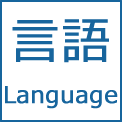ホーム > 長崎大学について > 学長メッセージ > 河野学長 > 令和2年度 長崎大学入学式学長式辞
令和2年度 長崎大学入学式学長式辞
2020年04月02日
| 令和2年4月2日 長崎大学入学式学長式辞 皆さん、入学おめでとう。長崎大学長の河野 茂です。昨年まで2年続けて入学式の式辞は英語で話しをしてきました。しかし、今年からは、英語ショックで国際化を意識して貰うより、皆さんに大学とは何かを解って欲しいと思い、日本語で話す決心をしました。 今年は新型コロナウイルス感染症の流行のため、緊張した雰囲気の中で、式が行われていますが、これまで新入生の皆さんを大切に育み、共に歩んでこられたご家族、関係者の皆様に心よりお喜びを申し上げます。 まず、皆さんが選んだ長崎大学は、地理的歴史的に極めて大きな特徴を持っています。日本人にとって「長崎」という響きから連想されるのは、エキゾチックな街であり、これは西洋の近代文明が幕末から明治にかけて長崎から入ってきた歴史に大いに関係しているでしょう。地理的にはユーラシア大陸に最も近く、近代前から交流の中心地でもありました。また、外国人にも「Nagasaki」という地名を知らない人は殆どいません。これは原爆が投下され、世界で唯一ヒバクした大学があることと大いに関係していると思われます。 さて、皆さんは大学が教育機関の中で、唯一教員免許なしで教えることができる学校と知っていますか。小中高校の先生は全員、教員免許を持ち、10年に一度は講習を受け更新手続きをする必要があります。どうして大学の教員はその必要がないか、考えてみて下さい。ここに皆さんが高校までに受けてこられた教育と大きな隔たりがある所以です。 さらに言います。大学には「教科書」はありません。大学に入学する前まで、皆さんは唯一つの正解が書かれた教科書を理解し、覚えて試験の時、正解として答えて来たことでしょう。そのような意味での教科書は大学にはないということです。あくまでも参考になるテキストでしかありません。固定した知識を覚えて、知っていても、常に新しい情報に出会い、そこから自分の頭で考え判断していかないと、これからの実社会で生き抜くことは難しいでしょう。大学は「知識」だけでなく、課題を自分で探し、それを解決するための情報を集め、選び、判断するための「知恵」を学ぶところなのです。 皆さんの学部によっては、国家試験に合格しなければ、たとえ無事大学を卒業できても、社会で役に立たない学部もあります。そのため、大学では明確な教育目標を掲げ、その目標を達成するために、整合性のあるカリキュラムや教育体制を用意し、前もってシラバスで明示された講義などを行うようになっています。皆さんは事前に自分が何を学びたいか学修計画を立て、その計画や目標を達成できたかを振り返ることも求められます。今まですべて決まった時間割り通りにやって来た皆さんがはじめは戸惑うところです。しかし、たとえこのようにして学ぶ前から容易に想像できる目標を達成できたとしても、それだけでは真の意味の「成長」にはなりません。学びの半ばで目標は変わるかもしれません。自分の頭で考えれば、そこには疑問が芽生えたり、よく解らなくなったりするものです。学ぶ対象すらも選択することが大学であり、知恵を学び、実社会に必要とされる能力の予行練習の場でありながら、一方で実社会とかけ離れた真理を探究する場でもあるのです。世間からは一面だけが取り上げられて、実情からかけ離れていると批判される所かも知れませんが、この距離感こそが大切なのです。大学は研究の場、新しい真理を発見する場であり、一般の社会と同じ論理、考え方でそのまま違和感もなく過ごしてしまえば、発見や成長のきっかけはありません。大学は社会の中で「異の空間」であり、何かがよくわかるような場ではなく、いったんよく分からなくなったり、疑問が芽生えたり、自分自身を問われる場に身を置いて、人として成長するところです。 私たちは皆それぞれ違う人生を歩みます。人生の歩みが異なるからこそ、全ての人がいかなる場面でも利用できるような知識などはありません。全てに近道、安易なノウハウなどないのです。それぞれ自分の力で情報を収集し、判断していく知恵が必要であり、大学での学びはそのためのものなのです。 ここでどうして大学の教員は免許がなくていいのかの話に戻しましょう。今までくどくどと説明してきたように、大学は何らかの知識や経験を持つ人が、それらを知らない学生に披露するための場所ではないということです。何故なら、大学の教員が生きてきた時代とこれから学生の皆さんが世の中に出て働いていく時代は常に違い、歩んでいく人生そのものが大きく違うからです。知識を覚えるより、どんな場所で働くことになっても役に立つ考え方、物事を見極め考える方法を身に付ける必要があります。実は大学の教員は研究者であり、教員はその方法を自らも常に学びながら、自分たちで洗練させ、試行錯誤している人たちです。知らないからこそ、知りたくなり、できないからこそ、できるための方法を知りたいという思いが湧いてくるものです。「学び」はこうした自分の中の欠落に気づき、それを埋めようとするところから始まります。いかに学生の皆さんが、できないかを自覚させるところが大学における学びの出発点です。 大学で教えられていることをそのまま覚えれば、すぐに何かの役に立つわけではありません。そうやって学んできた高校までの学習とは違う次元を大学は目指しているのです。その一つが「思考」というダイナミックなプロセスを身に付けることです。 よく学生さんは、教員のことを「何がいいたいのか解らない」、「結論がない」、「ちゃんと答えを教えて欲しい」といいますが、学生の皆さんが「むつかしい」と感じる時、ただ理解できないというより、話の水準がかみ合っていないということが多いのです。そもそも答えがハッキリしない問いを考えるように求められることなど、皆さんの想定外なのかもしれません。大学はこのように学生を閉じた世界から引きずりだし、「テスト勉強」からリアルな思考の現場に降りてきて貰う教育を今から始めます。 さて、ここで2020年から長崎大学が目指す方針を紹介します。それは「地球の健康(Planetary Health)」です。私達の住む地球は、環境問題ひとつとっても、危機的な状況にあります。その原因は、グローバルな視点からは、17才のグレタ・トゥーンベリさんが訴えている環境問題や国際紛争などの政治問題、ローカルな視点では、高齢化や人口減少、経済格差、教育問題などにあります。これらは複雑に絡み合い、直接あるいは間接的に地球の健康を冒しています。 長崎大学の10学部、7研究科では、プラネタリーヘルスの実現に向けて、その活動を進化させようとしています。人類の健康を地球規模で考えるグローバルヘルスから、地球自身の健康を考えるプラネタリーヘルスへ、長崎大学はより進化した教育・研究・社会貢献を目指します。地球の健康がこれ以上脅かされれば、人類の存在自体が危ぶまれます。私は、この危機を乗り越えるための教育と研究に、若い皆さんとともに邁進したいと考えています。長崎で学び、自然や社会が調和し、持続的な発展を地球が遂げるためのイノベーションに挑戦しましょう。 最後に、2020年は、忘れられない年になるでしょう。国難ともいわれる新型コロナウイルス感染症の発生、そして、東京オリンピック・パラリンピック開催延期に揺れる年。不安はあると思います、しかし、これからの大学生活を有意義なものにするために、長崎大学は皆さんが挑戦できる環境を整えて、若い皆さんの発する息吹を待っています。さあ、自分のため、家族のため、仲間のために、夢を実現し、新しい人生の第1歩を踏み出しましょう。 本日は入学、誠におめでとう。 |
| 長崎大学長 河野 茂 |
Entrance Ceremony Speech by the President of Nagasaki University (on April 2, 2020) Congratulations on your matriculation, and welcome to Nagasaki University. I am the university president, Shigeru Kohno. For the past two matriculation ceremonies, I made my speech in English to draw your attention to the importance of international-mindedness. However, this year, I have opted for a Japanese speech in the hope of getting across to you what a university is. The new coronavirus pandemic has made things rather tense this year as we gather for this ceremony, but I nonetheless wish to express my heartfelt congratulations to new students, and also to your families and mentors who have cared for and nurtured you, and were with you throughout your progress. The university you have chosen has very distinctive geographical and historical features. The word “Nagasaki” is often associated with exoticism in the Japanese consciousness because of Nagasaki’s history as a gateway for modern goods and ideas from the West during the late Edo and early Meiji eras. Nagasaki has played a central role in the country’s international interactions since premodern times because it is the Japanese port closest to Eurasia. The word “Nagasaki,” is also known to most people outside of Japan because of its atomic bombing, which has made Nagasaki University the world’s only university to undergo such an experience. I wonder if many of you knew that in Japan, universities are the only type of educational institution where an instructor is not required to have a teacher’s license. A primary or secondary school teacher in this country invariably has a teacher’s license, which they are required to renew every ten years by going through a dedicated training course. Please try to think of a reason for this, because herein lies the major difference between university education and the education you have received up to high school. Universities do not use textbooks, either. Up to now, you must have read and understood textbooks containing “correct,” unambiguous answers, which you memorized and replicated when taking exams. Textbooks in this sense do not exist at universities. At best they serve as reference books. Surviving real life as an adult would be difficult by learning and memorizing fixed knowledge alone unless you constantly seek out fresh information, and process the information through your own head. University is a place for learning not just knowledge but also the ability to proactively seek a problem, gather information for solving that problem, sift through the information, and make informed choices. Some of you have opted for departments of study that are not practical in real life unless you pass required national exams in addition to obtaining your undergraduate degrees. This is why universities set down clear educational goals, have coherent curriculums and educational systems for achieving the goals, and offer courses as described in the syllabus. Students are required to decide and plan what they will study, and review later whether they have achieved their plans and goals. This change from the fixed school timetable can be perplexing at first. Achieving an easily predictable goal, however, does not amount to genuine self-growth. Your goal might change half way through your study program. Thinking with your own head can give rise to new questions and dead-end. Universities are where you choose for yourself what you study. It is a place for learning discernment; a place for rehearsing the skills and abilities required in real life; and at the same time, also a place for exploring truths that have little to do with real-life situations. This sense of detachment from real life—though often singled out by those who criticize universities for not being career-oriented enough—is a crucial aspect of universities. There is no opportunity for growth or discovery at a university which refuses to encourage research into the unexplored parts of science and society. Universities occupy a “privileged” space within society. Universities are not for elucidation but for achieving self-growth by placing yourselves in situations that may cause temporary doubt, give rise to new problems, or cause you to question yourself from a new light. No two lives are the same. Because we all lead different lives, there is no such thing as a piece of knowledge that applies to all situations by all people. Shortcuts and easy know-hows simply do not exist. Every person needs the ability to gather information and make decisions independently, which is what university study is designed to develop. Let me return to why university instructors aren’t required to have licenses. As I have explained at length, university is not a place where professionals demonstrate their knowledge and experiences to students who lack them. Circumstances are always different between the times lived by the university instructors, and the times current students spend as professionals. What you will encounter in life will be completely different from what we have encountered. Instead of acquiring knowledge, you will need to acquire methods of thinking and methods of discerning that will prove useful no matter where you work. University instructors are in fact scholars—people who train themselves in these methods, constantly refining them through trial and error. Something we don’t know makes us want to find out more; and something we can’t do makes us want to devise a way of doing it. Learning begins only when we become aware of something we lack, and desire to fill it. The first step of university education, therefore, is to make students aware of their own inabilities. What you will learn at university will not necessarily be immediately useful. The goals of university education are set at a totally different level from primary or secondary education, which you might have found useful. One of the goals is to equip yourself with the dynamic process of “thinking.” Students often complain that they cannot see the point of what their instructors are discussing; that there is seemingly no conclusion to their arguments; and that they want the “correct” answer. Such frustration is often rooted not in just incomprehension but in discrepancies between university-level and secondary-level discussions. If you are new to university, perhaps you have never been asked to consider questions that have no clear-cut answers. Universities are tasked with providing the education for guiding students out of closed-end thinking, and the learning you are about to commence is designed to help you make the transition from obsession with test preparation to real-life thinking. Let me share with you a new goal that Nagasaki University has adopted effective as of 2020. Our new goal is “Planetary Health.” Our planet Earth—not least its environment—is in critical danger. The causes of this crisis from a global perspective are environmental, as seventeen-year-old Ms. Greta Thunberg has been at pains to point out, and political, such as international disputes. Local causes on the other hand include population aging, population decline, economic inequality, and issues to do with education. Tangled combinations of these causes are directly and indirectly harming the Earth’s health. Nagasaki University’s ten undergraduate schools and faculties, and seven graduate schools are poised to upgrade their activities for the achievement of planetary health. The university is aiming to make more advanced services to education, research, and society toward planetary health—a notion that addresses the well-being of the whole planet as opposed to global health, which is more concerned with human health on a global scale. If the health of the Earth is further compromised, human existence will be at stake. I am determined to fully commit myself to the education and research for battling this crisis in partnership with people of your generation. I hope that those of you who study here will join us in our efforts to produce innovations that help society develop sustainably, in harmony with nature on the earth. Finally, let me assure you that 2020 will at least be an unforgettable year. This is a year that a new type of coronavirus pandemic caused international havoc in the world, and the delay of the Summer Olympics games brought mixed feelings for people in the world. You are quite right to be worried, but Nagasaki University is looking forward to welcoming you and your exuberance, and is as ready as ever to provide the best environment for you to stretch your possibilities and spend the most rewarding student life possible. I offer my best wishes to all of you making a fresh start toward achieving your dreams, for yourselves, your families, and your friends. Congratulations again on your matriculation. |
| Shigeru Kohno President of Nagasaki University |





































